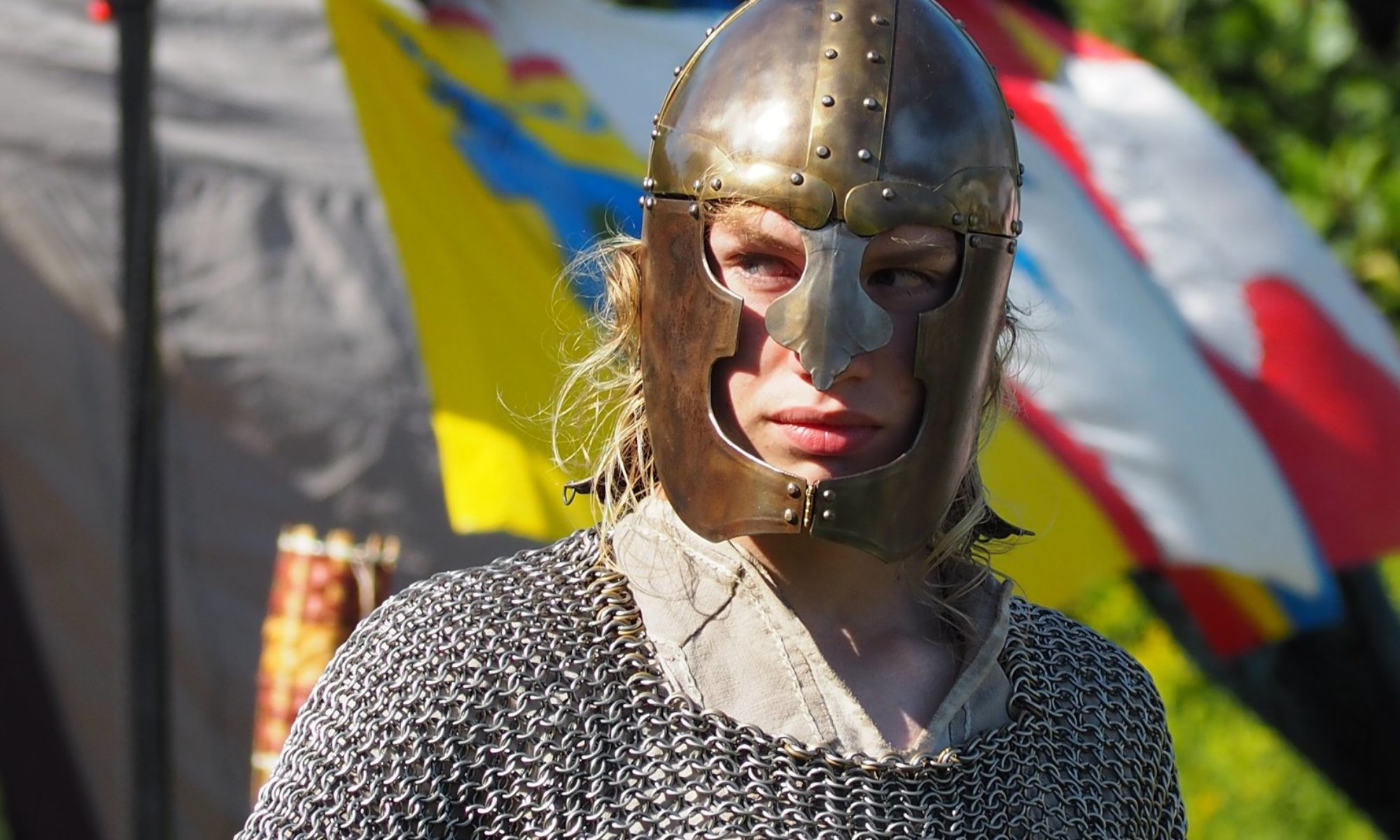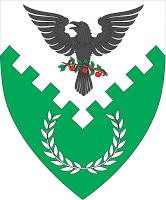While at feasts and other events, we do our best to look as lovely and Medieval as possible. We also try to act Medieval! It is beautifully immersive to be at a feast lit only with candles, with everyone in their best garb, and to see people bowing and curtsying to each other. But beyond that, some people have crowns and are treated a bit differently.
Here are some details about expected behaviour; but the TL;DR version is:
- Be polite and kind;
- Try to avoid modern slang;
- If you don’t know someone’s name, “Milord” or “Milady” is perfectly acceptable for all ages and ranks;
- “Charge your goblets” means “top up your drinks; we’re going to start making toasts”;
- and finally, we’re all shouting “Vivat!” (singular) or “Vivaunt!” after each toast, three times.
The longer version!
Be on your best behaviour. Do your best to avoid mundane topics, especially once the lights go out. It’s hard to pretend we’re really there if we can hear someone talking about the latest really awesome movie, or dumb political move, or whatever. Totally talk about your latest cool project or what, though.Offer aid. If you see someone who needs a hand, offer it. Offer help to the Seneschal or the autocrat or to the person collecting the tickets; it will be much appreciated even if it is not accepted. If offered aid, accept or decline graciously.
Now is the time, good gentles, to practise speaking forsoothly; that is, to speak in a manner more like that which would have been spoken in the original Middle Ages. This becomes easier with practise, but avoiding contractions and modern terms and slang (like, totally, ohmygawd) help build the medieval atmosphere we are all there to enjoy.
Wear garb. Ideally it will be your best garb, but anything is better than nothing. If you have nothing, ask the Chatelaine, who usually runs “Gold Key”, if they have anything in your size to borrow. Find out how to wash it and do so before returning it.
Bring your own feast gear. Gold Key may have some to borrow but at the minimum bring something to eat off, something to drink out of, and a small dagger. See “A Newcomer’s Guide to Feasting” for more details.
There may be “pointy hats” in attendance. This means royalty, usually with crowns (the aforesaid “pointy hats”) of some kind: The king and queen; princes or princesses; dukes, duchesses, counts and countesses; barons and baronesses… There may also be other members of the Peerage: knights (with white belts and possibly spurs), Laurels (a badge or pendant of a laurel wreath, possibly a circlet), Pelicans (the same as Laurels, but with the symbol of a Pelican “in her piety”)… Treat them with respect. When royalty enters and leaves, everyone stands and bows until they are seated or are gone. They will be served first; wait for them to begin before eating yourself. If you need to pass in front of the high table, even if it is not occupied, make a reverence to it (that is, bow or curtsy). If there are thrones set up for them, do the same there, again, even if unoccupied. Reverence if you pass them standing or sitting anywhere else. If you wish to talk to them, do not interrupt if they are in conversation; wait, or approach one of their attendants and quietly ask if you may have a few minutes. –Of course, if they approach you, give them all courtesy and attention.
Kings and queens are addressed as “Your Majesty/ies”.
Princes and princesses (either the king- and queen-in-waiting, or the heads of a principality, aka an incipient kingdom) are addressed as “Your Highness/es”.
Barons and Baronesses as “Your Excellency/ies”.
Anyone else address by their title if you know it, but you won’t go wrong with “my lord” or “my lady”. “Treat your inferiors as your equals, your equals as your superiors, officers as representatives of the King and Queen, and the King and Queen with reverence due your sovereigns.”
They may hold court. If they do, attend quietly. If they call you up, go to the centre aisle, stop halfway up and reverence; reverence again when you get there. If you are being called to make an announcement, do so from the side, facing halfway between those at the front and the audience; we don’t want to present our backs to them! Otherwise, if there is a pad or a footstool in place, kneel. When you are done, rise, reverence, and back about five steps down that centre aisle before reverencing again. You may then turn around and walk to the end of the aisle.
It is proper for a woman to be accompanied if she is called up; if she is alone, a courteous gentleman should offer his arm. You will stand to the side once up there until she goes to leave again. Remove any weapons or hats.
If it is a potluck feast, bring a dish, medieval in appearance if not an actual medieval recipe. Supermarket roast chicken (if on an appropriate platter) is perfectly acceptable; KFC is not. Pre-cut if cutting is required, or provide a knife. Bring enough to give about twenty people a decent taste of it. If you are a family, bring some more as you will be eating more than one individual. If you are bringing bread, try to find loaves or buns that look hand-formed and -made, not just a loaf of regular sandwich bread. Bring a bowl or board to serve it upon. And bring something to go with it as well: butter and honey, or cheeses, not just plain bread! Plain bread is alms for the poor, not a feast offering. Don’t forget serving spoons (if needed). Label them and the serving dish! Also label the item, and the ingredients: unexpected allergy attacks aren’t fun.
Having said that, if you do have allergies or other dietary restrictions, consult with the feastocrats ahead of time (for a prepared feast) so they can safely feed you. “Ahead of time” here means when making your reservations, which should be done well in advance so they can plan the meal. There may not even be tickets available if you wait to try and buy them at the door.
If your dish needs to be refrigerated or re-heated, arrange kitchen space ahead of time with the autocrat or feastocrat; there may not be room on the day. If it needs to be refrigerated, bring it in a cooler; food poisoning is one of those very period things we don’t want to recreate.
At some point in the feast (it may be at the beginning, or partway through), someone will stand up and start calling for toasts. Usually (this may vary kingdom to kingdom), the first one is to the king and queen; the second one will be to the Barony; there may be others. They may then open the floor to other toasts. If you wish to make one (that has not yet been made), speak clearly when doing so, and please, keep it brief. Have liquid on hand for the toasts (they will give you an opportunity to top up your cups first); if you have nothing then just raise it to your lips and pretend.
Hey, you know that scene in that medieval movie, where everyone is just gnawing away on giant hunks of meat, belching, wiping their mouths with their beards, and throwing the bones on the floor? Don’t do that. That’s Hollywood, and is just as couth as it would be today. Also don’t pinch the wenches. Be polite; if you are about to dish yourself something up, offer it first to those around you. Ask for items to be passed to you; don’t reach.
“Bardic” means someone is about to entertain you, usually with a song or a poem. Depending upon the acoustics and the performer, they may be hard to hear, so please be polite and do not talk during their performance. Applause is more usually by rapping on the table than clapping. Applaud even if you didn’t much care for it; it is an act of bravery to stand and perform before all, and we should not discourage those who would entertain us!
Staying after to help clean up is very much appreciated and helps the clean-up go faster for everyone.
This is an excellent article on courtesy and expected modes of behaviour in general, at feasts, and in court, and well worth a read.
This is also a great page on Medieval manners. Remember to wipe the grease off your upper lip before drinking from that shared goblet!

